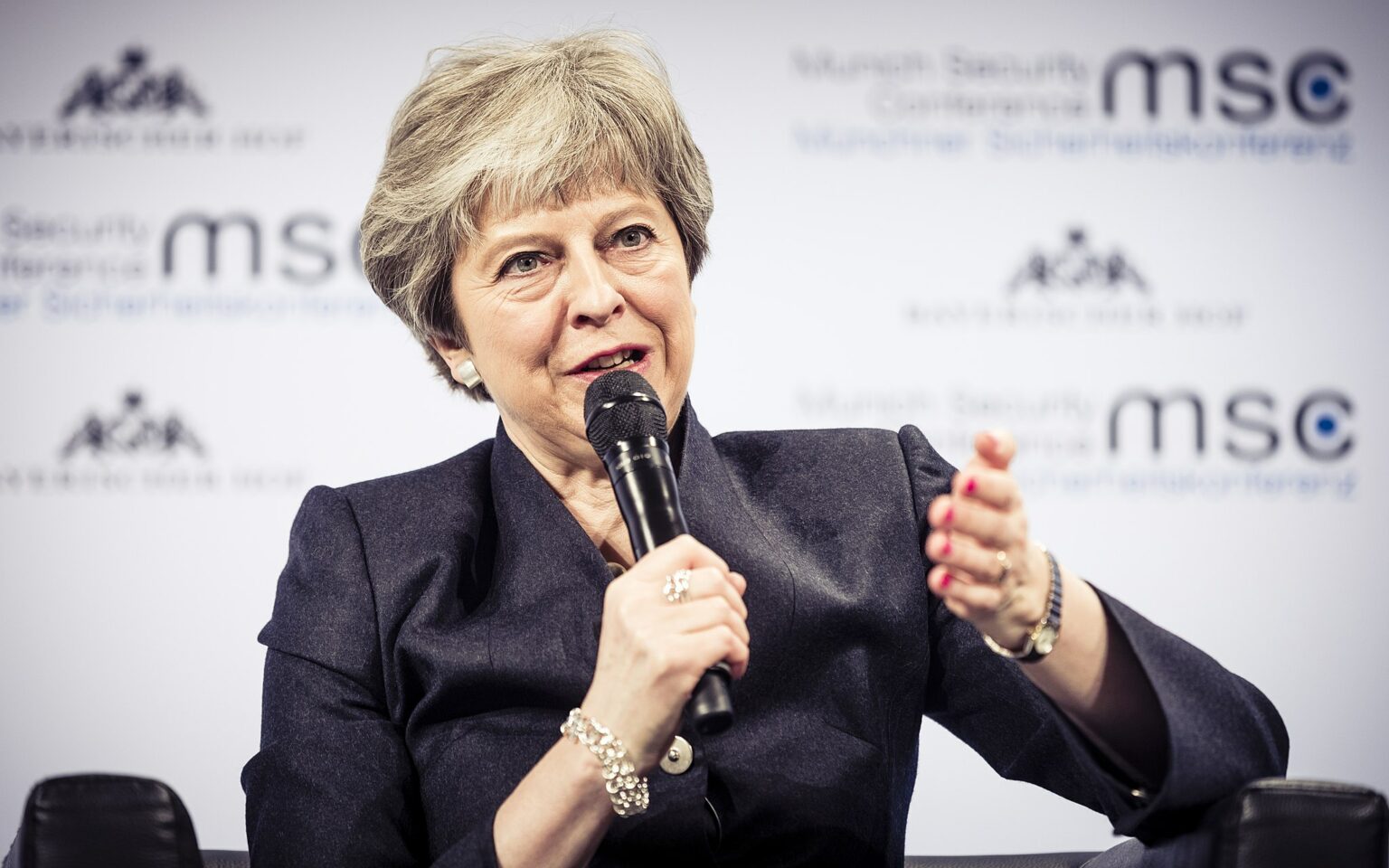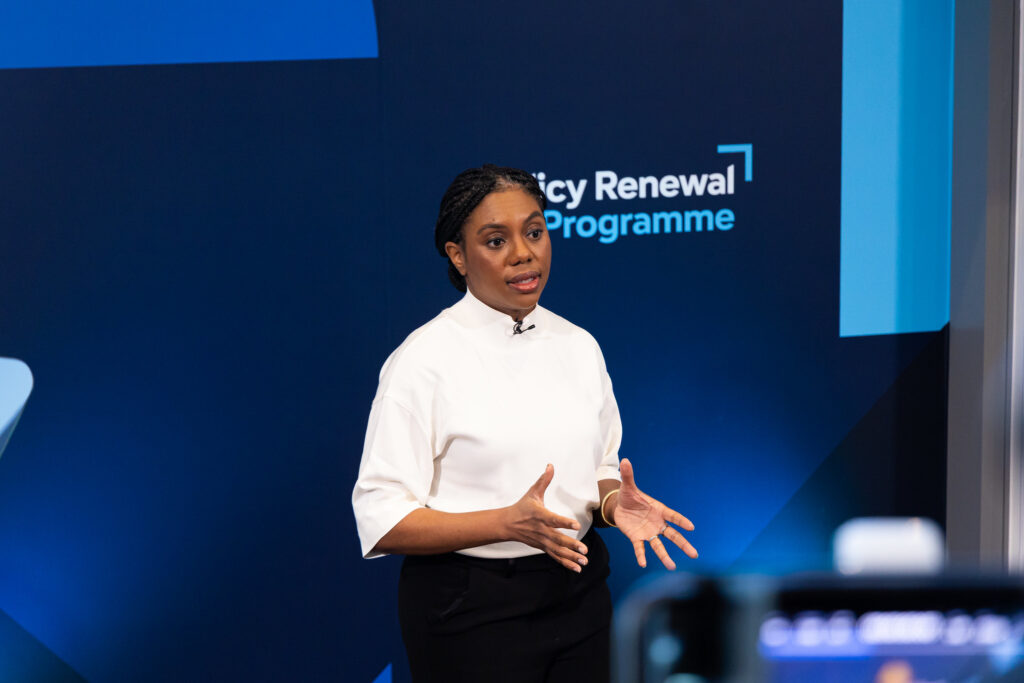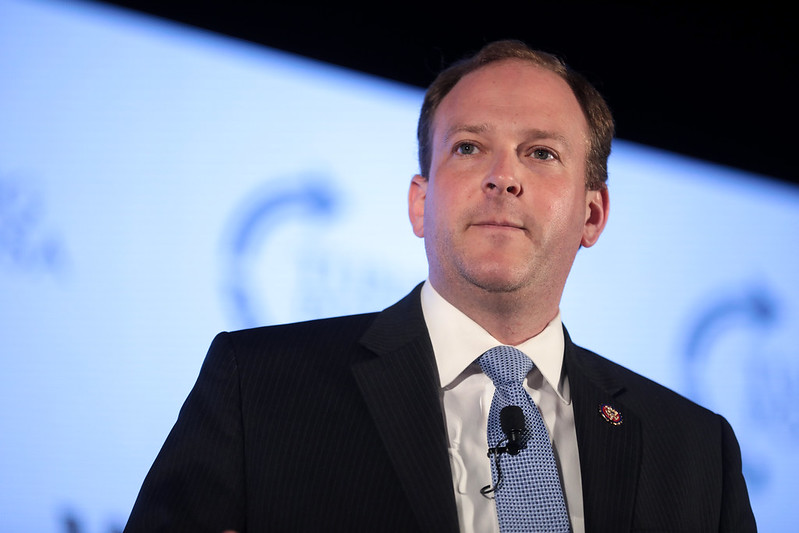Former Prime Minister Theresa May has slammed climate “sceptics” and “pessimists” who oppose the UK’s net zero targets, arguing they have been proved wrong and are out of touch with public opinion.
In an apparent nod to libertarians in her party, she criticised “absolutists” who “dream of a marketplace entirely free from government intervention”, saying “those who actually risk their money understand that no such thing is possible, or even desirable.”
May, who was UK Prime Minister from 2016 to 2019, was speaking last night at an event hosted by the Conservative Environment Network (CEN), which represents more than 100 Tory MPs who back policies to cut emissions and protect nature.
In her speech, May called on Conservatives to unite ahead of the UN COP26 climate summit. Her intervention comes as some backbench Tories are set to launch a “Net Zero Scrutiny Group” to oppose net zero measures, which they say are too expensive and will lose their party votes.
May said the UK has “confounded the pessimists” by taking action on climate change while growing the economy. She said: “The pessimists were also wrong about the costs of low-carbon energy. The cost of wind power and solar power has plummeted over the past decade whilst creating thousands of jobs.”
On the cost of energy transition, May said: “It is essential that low-carbon and green infrastructure is not simply seen as an upfront cost, but instead an investment that will deliver returns.”
‘A Unifying Issue’
May went on to say government action on climate change is popular, including among voters in the “Red Wall” seats the Conservatives won from Labour in 2019. Last month leaked WhatsApp messages showed Tory backbenchers warning that climate action could lose them “Red Wall” voters.
“The environment doesn’t divide people in this country – it is a unifying issue”, May said.
“Indeed, recent polling from Opinium shows that the number of people who believe we can’t afford to take action against climate change is now heavily outweighed by those who say that we can’t afford not to.”
May also cited polling by the More In Common thinktank, which found concern about climate change was common across political and social groups. She added: “And, crucially for today’s politicians, that includes voters in ‘Red Wall’ seats.
“There is no constituency in this country for trashing the environment.”
May said the “new frontier” for sceptics was transport. A report last month backed by net zero-sceptic MPs including Steve Baker and Craig Mackinlay by the motoring lobby group FairFuelUK attacked the government’s 2030 ban on new diesel and petrol cars.
“Once again, the sceptics and pessimists are out in force. But the shift to electric vehicles is happening and with enthusiasm.”
May’s lecture was delivered in memory of Sam Barker, a former Director of CEN, who passed away in August 2018 following a battle with cancer.
Sam Hall, Director of the Conservative Environment Network, said: “Mrs May has issued a powerful call for Conservative unity on climate change, as the government prepares to publish its net zero strategy and host the UN climate summit in Glasgow in November.
“The evidence is now overwhelming that tackling climate change is both popular with the public and good for the economy.”
Chequered Record
Theresa May’s own record on climate change has not gone uncriticised, however.
As Prime Minister, May ratified the Paris Agreement in 2016, set a target of cutting greenhouse gas emissions to net zero by 2050, and introduced a phase-out of coal-fired electricity generation by 2025.
But she also approved the expansion of Heathrow Airport in 2016, despite her long-term opposition to the project on both climate and health grounds.
A 2019 ranking of MPs’ votes and interests on climate change by DeSmog and the Guardian gave May a score of 33 percent – though this was higher than many of her colleagues. She was present for 12 indicative votes and voted positively in four.
In 2016, Theresa May received a £15,000 donation from Ian Taylor, chair and former global chief executive of Vitol Group, the Dutch oil and shipping company. In 2009, May also accepted tickets to a Carlton Club dinner worth £1,200 from Michael Hintze, a funder of the Global Warming Policy Foundation, the UK’s most prominent climate science denial group.
In 2017, DeSmog reported that two of May’s special advisors, Chris Brannigan and Jimmy McLoughlin, met with the US libertarian group the Cato Institute, which was founded by oil billionaire Charles Koch of Koch Industries. Koch and Cato both have long histories of promoting climate science denial and lobbying against climate policy in the US.
The same year, May reportedly lobbied the Bahraini government on behalf of Petrofac, a provider of oilfield services founded by a major Tory donor that is currently the subject of a Serious Fraud Office investigation for corruption.
In 2018, May nominated two of the only five Conservative MPs who voted against the UK’s 2008 Climate Change Act for peerages – Peter Lilley and Andrew Tyrie.
And in April 2020, May was paid £160,370 for two speeches to JP Morgan Chase, which campaigners say has invested £230 billion ($317 billion) in fossil fuels since the Paris Agreement, the most of any bank in the world. One was delivered in March 2021 and the other has yet to take place.
Subscribe to our newsletter
Stay up to date with DeSmog news and alerts







